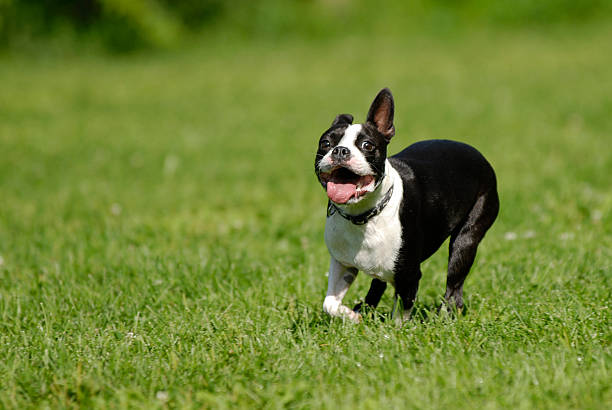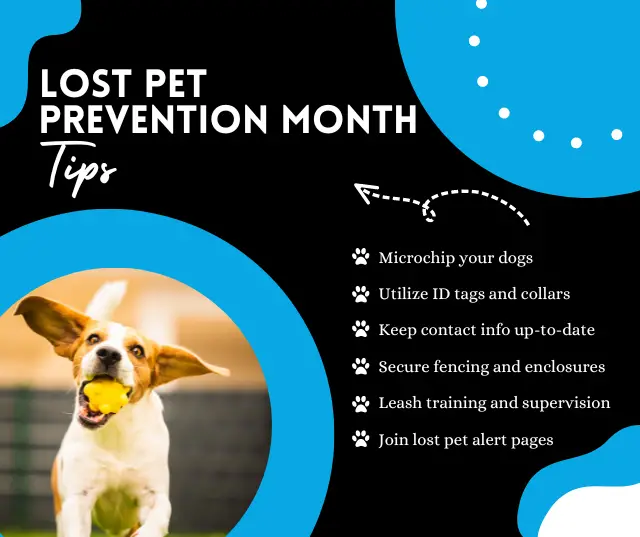Boston Terriers are intelligent, affectionate, and playful dogs that make great companions. However, like all dogs, they require training to ensure that they are well-behaved, happy, and healthy. In this guide, we’ll cover some tips and tricks for training your Boston Terrier.
Start Early
The earlier you start training your Boston Terrier, the easier it will be. Puppies are like sponges, and they absorb information quickly. Starting early will help your Boston Terrier learn good habits from the beginning, which will make training easier in the long run.
Use Positive Reinforcement
Positive reinforcement is one of the most effective methods for training dogs. Positive reinforcement involves rewarding good behavior with treats, praise, or other rewards. This approach helps your Boston Terrier understand what is expected of them, and it reinforces good behavior.
When using positive reinforcement, it’s important to be consistent. Reward your Boston Terrier immediately after they exhibit good behavior, so they understand what they are being rewarded for. Be sure to use a clear and consistent commands when training your dog, so they can easily understand what you want them to do.
Be Patient
Training a dog takes time and patience. Don’t expect your Boston Terrier to learn everything overnight. It’s important to be patient and to keep training sessions short and focused. If your dog seems to be getting frustrated or tired, take a break and come back to the training later.
Be Consistent
Consistency is key when it comes to training your Boston Terrier. Dogs thrive on routine and predictability, so it’s important to establish a consistent routine for training. Make sure that everyone in your household is using the same commands and approaches to training your Boston Terrier.
Socialize Your Boston Terrier
Socialization is important for all dogs, and Boston Terriers are no exception. Socialization helps your Boston Terrier learn how to interact with other dogs and people. This is especially important for Boston Terriers, as they can be prone to anxiety and aggression if not socialized properly.
Start socializing your Boston Terrier as early as possible. Take them to dog parks, pet stores, and other places where they can interact with other dogs and people. Be sure to supervise your dog closely during these interactions, and reward good behavior with treats and praise.
Teach Basic Commands
Teaching your Boston Terrier basic commands is an important part of training. Some basic commands to teach your dog include:
1. Sit: This is a simple command that can be taught by holding a treat above your dog’s head and saying “sit” as you move the treat back towards its tail. When your dog sits, reward them with the treat.
2. Stay: This command can be taught by having your dog sit, then holding your hand up with your palm facing your dog and saying “stay.” Step back a few steps, then return and reward your dog for staying.
3. Come: This command can be taught by calling your dog’s name and saying “come” while holding a treat. When your dog comes to you, reward them with a treat.
4. Leave it: This command can be used to prevent your dog from getting into something it shouldn’t. Hold a treat in one hand and say “leave it” as you offer your other hand. When your dog ignores the treat in your hand, reward them with the treat in your other hand.
These basic commands are the foundation for more advanced training, such as obedience training and agility training.
Practice Consistently
Consistency is key when it comes to training your Boston Terrier. Practice training commands and routines regularly, and try to make training sessions short and focused. As your dog gets better at training, you can gradually increase the length and difficulty of the training sessions.
Be Patient and Persistent
Training a Boston Terrier requires patience and persistence. Your dog may not learn everything immediately, and there may be setbacks along the way. However, with consistent training and a positive attitude, you can help your Boston Terrier become a well-behaved and happy companion.
Avoid Punishment
Punishing your Boston Terrier is not an effective training method. Punishment can cause fear and anxiety in your dog, and it can damage the bond between you and your pet. Instead of punishment, focus on positive reinforcement and redirecting your dog’s behavior.
For example, if your Boston Terrier is chewing on something it shouldn’t be, redirect its attention to a toy or treat that they are allowed to chew on. If your dog is jumping on people, teach them the “off” command and reward them for obeying.
Use Treats Wisely
Treats are a great way to motivate your Boston Terrier and reinforce good behavior. However, it’s important to use treats wisely. Too many treats can lead to weight gain and other health problems, and your dog may become dependent on treats for good behavior.
When using treats in training, use them as a reward for good behavior, not as a bribe. Use small, low-calorie treats, and gradually reduce the frequency of treats as your dog becomes more proficient in their training.
Get Help When Needed
If you’re having trouble training your Boston Terrier, don’t be afraid to seek help from a professional dog trainer. A trainer can help you identify problem areas and develop a training plan that works for your dog’s personality and behavior.
A trainer can also help you address specific issues, such as separation anxiety, aggression, or fearfulness. With the help of a trainer, you can develop the skills and techniques you need to train your Boston Terrier effectively.
Conclusion
Training a Boston Terrier can be a rewarding and fun experience for both you and your pet. By starting early, using positive reinforcement, and being consistent, you can help your Boston Terrier learn good behavior and become a well-behaved and happy companion.
Remember to be patient and persistent, and to avoid punishment and excessive threats. With time and practice, your Boston Terrier will learn to obey commands, socialize with other dogs and people, and be a joy to be around.
If you’re having trouble with training or behavior issues, don’t hesitate to seek help from a professional dog trainer. With the right guidance and support, you and your Boston Terrier can achieve success in training and build a strong and loving relationship.









